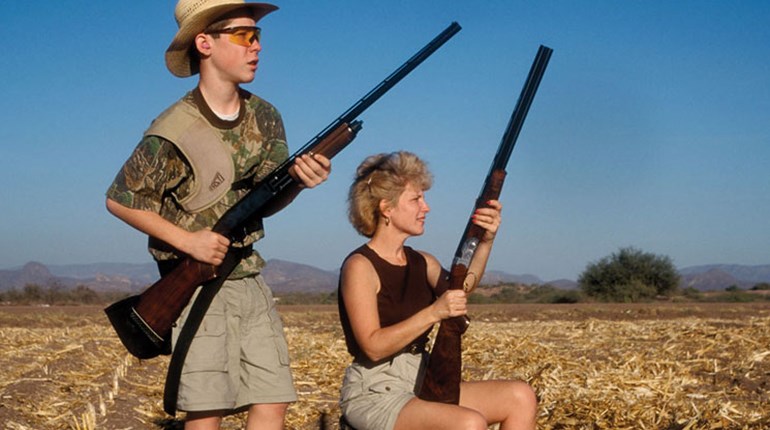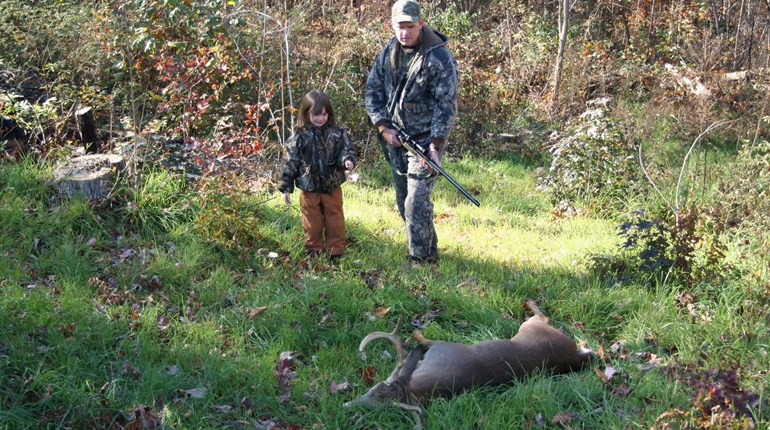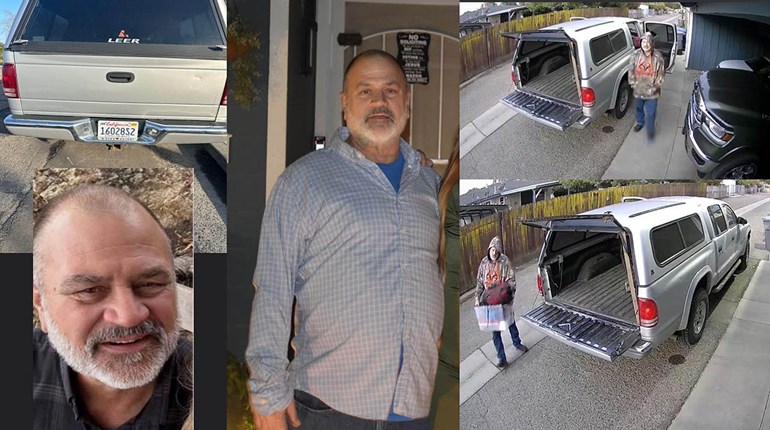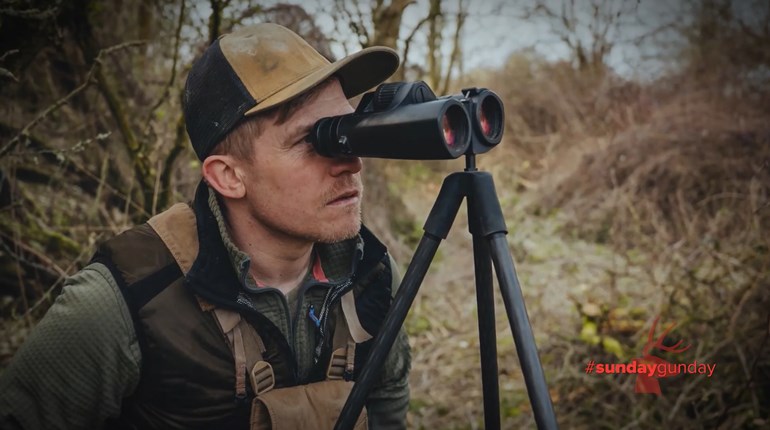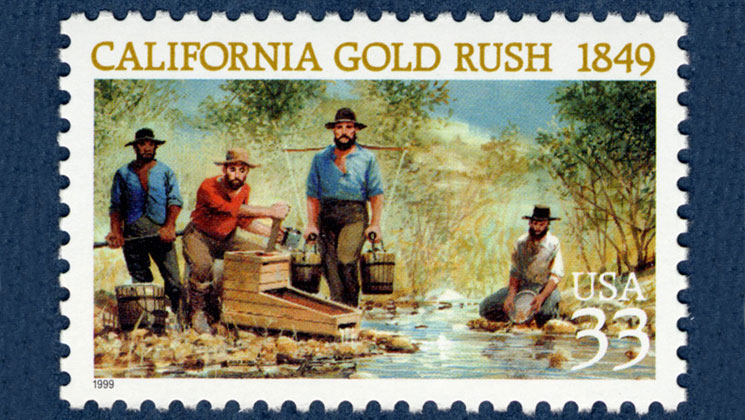
In 1849, gold fever flared in California, quickly spread east, and few were immune. Laborers, farmers, shopkeepers, lawyers, politicians, school teachers, newspapermen, even doctors caught the disease, abandoned family and friends, and hurried West. And why not? Weren’t gold nuggets as big as your fist lying in California rivers and streams, just waiting to be discovered?
But the would-be gold miners had one major problem: how to get to California? Most of them would have to cross much of the North American continent, and they had two choices: sail around the tip of South America by ship, or walk some 2,000 miles cross-country along the Oregon-California Trail. For safety, the walkers usually banded into groups formed with others from their home area. Even so, their trip was fraught with danger from hostile Indians, an even more hostile environment, accidents, disease, and sometimes their fellow travelers.
 One particular group—13 men from Athens County, Ohio—named themselves the Buckeye Rovers. Would they make it to California? And if so, could they find the rumored gold that would make them rich beyond their wildest dreams? This is their story of crossing the continent on foot during the mid-19th Century, told in the words of one of their own, John Banks, who kept a detailed diary during the five-month journey.
One particular group—13 men from Athens County, Ohio—named themselves the Buckeye Rovers. Would they make it to California? And if so, could they find the rumored gold that would make them rich beyond their wildest dreams? This is their story of crossing the continent on foot during the mid-19th Century, told in the words of one of their own, John Banks, who kept a detailed diary during the five-month journey.
The trip began in early April 1849, as the Rovers traveled by steamboat from Ohio to St. Joseph, Missouri, requiring two weeks. There they purchased their overland “outfit” consisting of three sturdy wagons, 11 yoke of oxen, one yoke of cows, food staples, and other equipment and supplies. Below are excerpts from Banks’ lengthy diary, chosen to show the hardships endured along the trail as well as the land’s natural wonders.
May 17: Cloudy with an appearance of rain. “Much sickness in your camp?” is now a common question. Deaths numerous. Passed a grave containing three persons, all of Illinois.
May 21: This morning rumor says 22 men killed, 16 wagons burned by Indians a few miles ahead. Each man is preparing himself for action. Encamped where we had to carry wood and water one mile.
May 23: We are evidently in the buffalo country; numerous skulls attest to this. Elk horns have been common some days. The frequency with which we see scraps of paper or a small board telling who’s ahead is amusing. Some of our men out hunting report much game: elk, antelope, and turkeys. We are in the midst of the Pawnee Nation. They are savage and treacherous.
May 27: This day was beautiful. How often I think of home. As we neared the Platte River today the number of antelope was astonishing. They are beautiful and very swift. Yesterday we saw five wagons laden with furs going east to the states.
May 30: Saw a man going back; the journey is not what many expected it to be. Plenty of snakes, green spotted and rattle. Six of the latter killed in less than half an acre.
June 2: Yesterday three men went 18 miles back to hunt. Saw vast quantities of game and were bringing in some when they found that they themselves were chased. They had a hard race for eight miles. There were 11 well-armed Indians yelling savagely.
June 5: Saw Indians of the Sioux nation; smoked the pipe of peace.
June 6: Passed through the Indian Encampment; 200 wigwams, 1,000 men, women, and children, many of them fine looking. Armed with guns, hatchets [tomahawks], bows and arrows tipped with iron, their objective is the extermination of the Pawnees.
June 8: A Mr. Gilmore accidentally shot himself through the calf of the leg while putting a cap on his pistol. He was in great pain. Firearms carelessly handled are often death’s messengers. Almost eaten up by mosquitoes.
June 16: The waste of provisions and property along this road is truly wonderful. Some 3,000 pounds of iron in one place. Wagons worth 75 to 100 dollars broken up, chains and harness, saddles, and large quantities of tolerable good clothing. Piles of bacon, and in one place some 300 pounds of good flour, bread in large quantities. Anything that impedes progress is cast away as worthless. Gold ahead!
June 20: The Rocky Mountains in full view. We heard that eight men were killed by drinking from a spring three miles east of Chimney Rock. The water, it is said, is pleasant to the taste.
June 22: Reached the Platte [River] at noon and prepared to cross. Ten feet to 15 deep and rapid. Six or eight men drowned and much cattle. It seems like a battlefield. Weather delightful.
June 23: Caught some fine fish, enough for three meals for all.
July 2: Here we left one of our wagons well and sound. Our teams failed too much to bring it on. Saw two other wagons cast away, much property of other kinds, three stoves and 300 pounds of bacon. The number of dead oxen is such that should they increase they will create a pestilence.
July 3: Heard a report yesterday, which is now confirmed, of a Mr. Everette, formerly of Athens, Ohio, having murdered his companion. They were traveling with pack mules. Some who had seen them on the road asked of his friend. He answered he saw him drown in the Platte. They immediately took the rascal prisoner, previously having found the deceased pierced by a bullet. One report says he [Everette] will be hung tomorrow. Heard there is some 2,000 teams before us, and not less than 5,000 behind.
July 6: This morning a boy some nine or ten years old was driving a team when he was run over by a heavy wagon, one wheel passing over his face, the other over his chest. He is expected to recover. I had seen him playing in the morning; such is life.
July 7: My health since I left home has been excellent. Today we had three sage or mountain hens and a hare for dinner.
August 3: We nooned near Goose Creek where, as report has it, 200 men are digging gold with good success. If so, we are near the shining metal.
August 14: Many [men] are packing through on their backs, afraid to remain with their teams for fear of freezing to death in the mountains. Six passed this day. The emigrants, with few exceptions, have thrown away everything thought not necessary to their own safety.
August 29: Weather as cold as October in Ohio. Nights very cold and frosty, middle of the day pleasant. All well.
September 2: This day we were scarcely out of the smell of putridity. Not less than 200 carcasses of oxen and horses are strewn along the road within 30 miles. Fifty hours and not more than three of them in sleep.
September 5: We are in sight of the Sierra Nevada Mountains. Crossed Truckee River nine times. Grass good.
September 8: The pines are large and majestic, often four and five feet in diameter. The country is wild and rugged.
September 10: We found a fishing pole (elegantly made) stamped “Bell Alley Temple Bar.” It was hid in a clump of willows.
September 11: We were wakened in the night by the howling of wolves. Their serenade is horrible, yet they inflict it on us almost every night. Such as it is, we must put up with it.
September 12: This evening we saw the cabins built by the unfortunate Donner and companions. The account of their sufferings appears horribly corroborated by the piles of broken bones.
The Buckeye Rovers all eventually made it safely to the California gold fields, and despite their many trials John Banks never lost his sense of humor. One of his final diary entries describes the travelers being spooked one night by an imminent “Indian attack.”
September 16: Last night about one o’clock, several distinctly heard an ox make the most mournful noises. Indians, we thought, were trying to cause a stampede of our cattle. We were all armed and ready. Some actually saw Indians move; we fired, the object vanished. Presently, all was quiet, but we watched till daylight. Now for the awful scene. Two or three trees were badly wounded, but I think they will recover. They were unable to stir, except their tops. They are certainly cripples as far as moving is concerned. The groans had come from a dying ox found today. Thus ended the farce.
The migration of some 300,000 Forty-Niners from around the world to California reached its peak during the two years following 1849, but by that time most of the easy gold had played out and the Buckeye Rovers were thinking about returning home. All the Rovers found gold, but none got rich. Banks even opined that had they taken menial jobs upon arriving in California and stayed with them, they likely would have made more money, hour for hour, than constantly moving around prospecting, panning, and digging—chasing gold.
By 1852, all the Buckeye Rovers had returned to Ohio except the Dixon brothers (Joseph, a medical doctor, and Hugh) who were both shot and killed by Indians in California. The other Rovers lived to tell and retell tales of the Gold Rush—their adventure of a lifetime.














